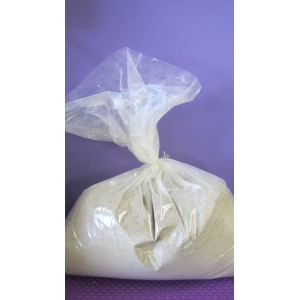- > Print
- > View full size
Phosphorus stimulates budding and blooming. Plants need phosphorus to produce fruits, flowers, and seeds. It also helps make your plants more resistant to disease. Phosphorus doesn't dissolve like nitrogen. The soil will hang onto phosphorus, not releasing it into water.
Phosphate is needed by all life forms but if taken in too greater quantities it becomes harmful.
In the distant past phosphorus was obtain from manures especially bird or bat droppings called guano. Phosphorus was also obtained from Reactive Rock Phosphate which is a hard phosphatic rock. In most soils it dissolves very slowly.
To make the rock phosphate more readily available to plants man discovered a process of using sulfuric acid, early in the 1900’s and a new agricultural fertiliser was created called Super or Super Phosphate. It became a boon to agriculture and farming with tons of Super been spread to cause fast growth in fields and crops.
Unfortunately like a number of discoveries such as DDT and Asbestos, there was a hidden price to pay. Superphosphate kills soil life and with their demise leads to unhealthy plants.
Not only that, it was also found that Super laden plants and grasses caused health problems in stock including cancers.
I read a very interesting book recently called ‘Cancer, Cause and Cure’ written by an Australian farmer, Percy Weston.
Percy observed the results of the introduction of Super on his farm and the malays that occurred. If you are interested the book can be obtained by mail order, phone
0800 140 141. The book made me reconsider the use of Super in garden fertilisers.
Now days I would never use a chemical fertiliser or chemical sprays including any herbicides anywhere on my property.
But I have noticed, that even though I obtain good healthy crops and plants, there is some factor that appears to be missing and the crops are not as lush as I feel they could be. I have often thought that I am not getting sufficient phosphorus in my composts and mulches.
This caused me to do a bit of research on the Internet and found to my delight a company in New Zealand called Sieber Technologies Ltd who make a product called BioPhos. They take the rock phosphate and break it down naturally with micro organisms making it as readily available to plants as Super is.
The company sent me a email booklet and it showed trials that proved that not only did BioPhos work as well as Super, but actually better as it did not have a ‘peak’ growth on application and gave a much longer sustained release of phosphorus to plants. Instead of killing soil life it actually supplies new micro organisms to the soil which carry on breaking the natural phosphorus down, meaning that only one application is needed per year unless you are cropping during the winter as well.
Some rose growers and rose societies recommend using BioPhos for better, healthier roses.
BioPhos contains phosphate, potassium, sulphur and calcium at the rates of P10:K8:S7:Ca28. BioPhos is Bio Certified for organic growing.
It is pH neutral and used at the following rates; New beds work in 100 grams per square metre, the same with lawns but water in to settle.
Side dressing plants; seedlings 8 grams (a teaspoon full) around base of the plant or in the planting hole. Same for potatoes (which do well with phosphorus) Sowing beans peas etc sprinkle down row with seeds. Roses and similar sized plants 18 grams or a tablespoon full around plant or in planting hole.
Established fruit trees etc, spread at the rate of 100 grams per square metre around drip line or where feeder roots are. Apply to vegetable gardens in spring and a further application in autumn if growing winter crops. Can be applied to container plants also. Apply to tomatoes when planting or side dress existing plants.





